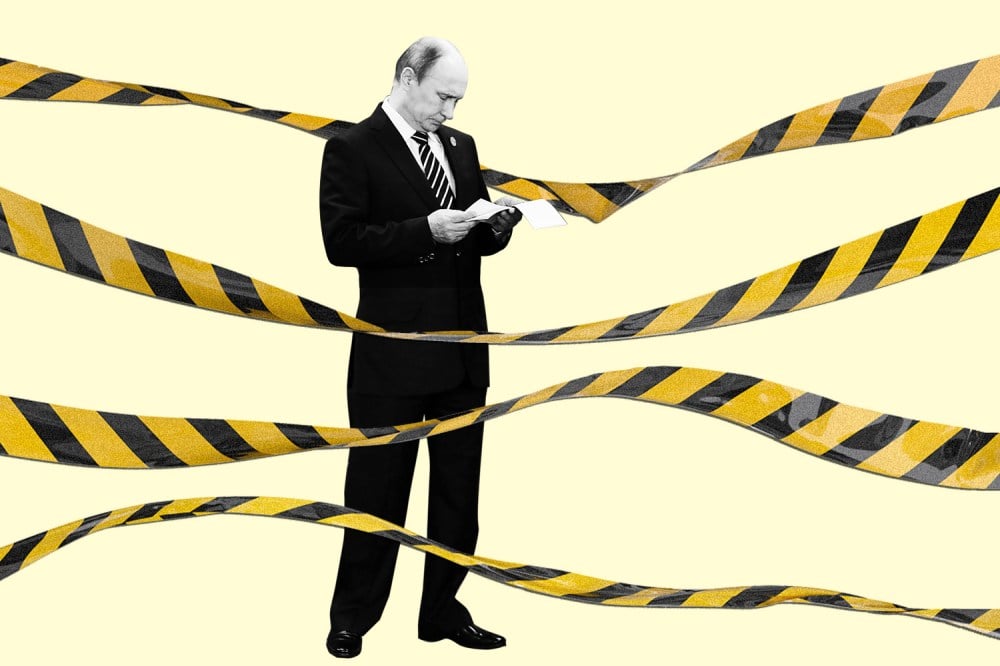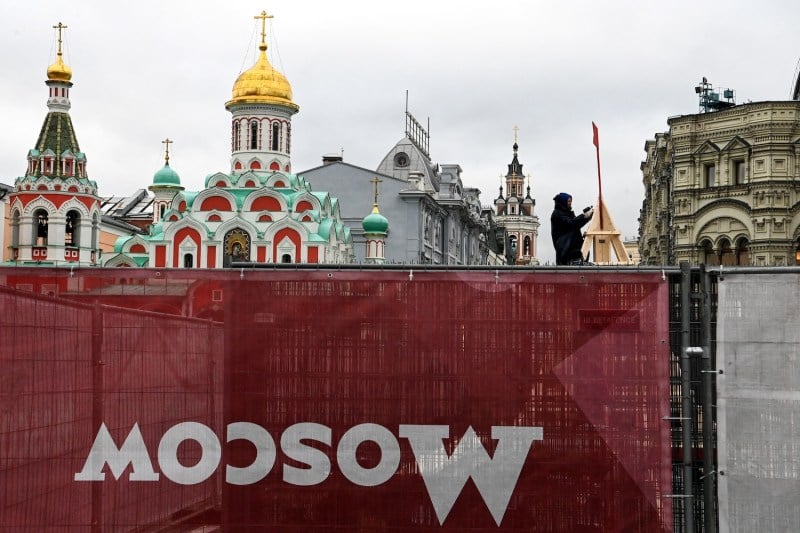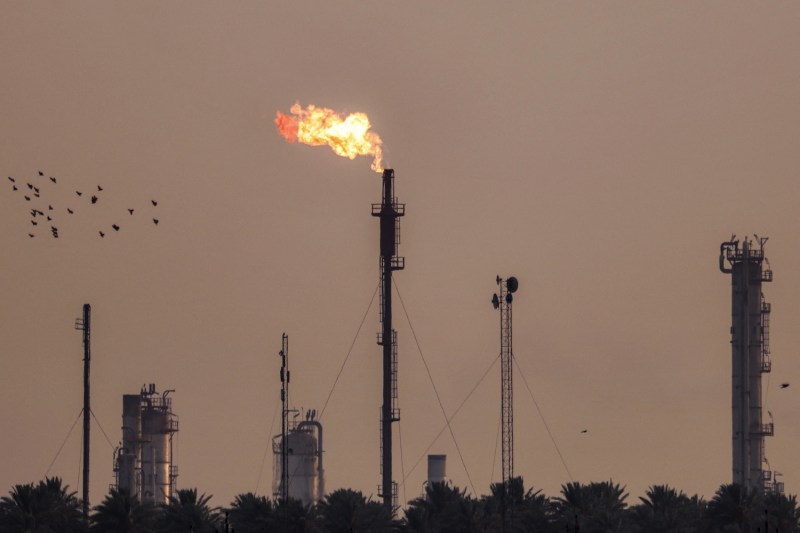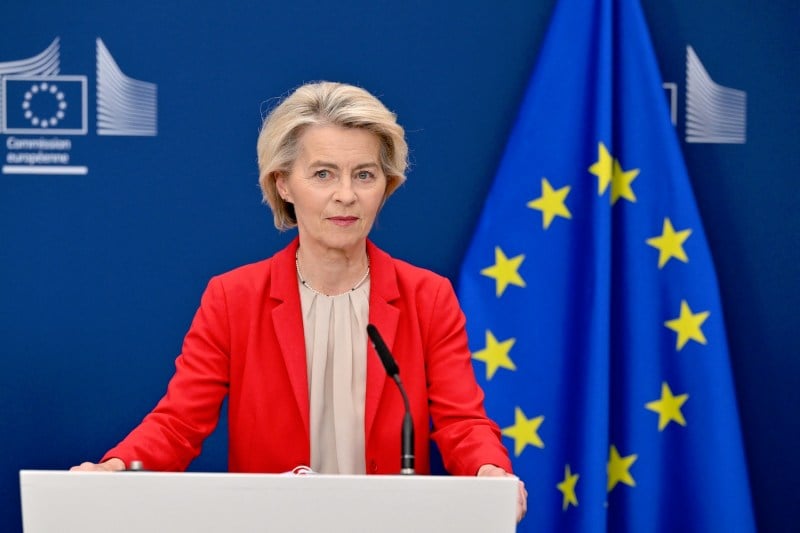It has been more than 40 months since Russia invaded Ukraine, which means that it has been more than 40 months of economic sanctions being imposed on Russia. The very fact that Russia launched its full-scale invasion of Ukraine revealed how the threat of sanctions failed as an instrument of deterrence—and Russia’s unceasing prosecution of the war since February 2022 is powerful evidence that they have failed as an instrument of coercion.
The question is, where do we go from here? This depends on who you ask. The Trump administration’s position on this subject has been erratic. U.S. President Donald Trump has periodically threatened to further ratchet up sanctions against Russia, only to back down every time. He recently imposed extremely high tariffs on India because that country has bought Russian oil—yet he failed to impose similar measures against China, which imports even more Russian oil.
It has been more than 40 months since Russia invaded Ukraine, which means that it has been more than 40 months of economic sanctions being imposed on Russia. The very fact that Russia launched its full-scale invasion of Ukraine revealed how the threat of sanctions failed as an instrument of deterrence—and Russia’s unceasing prosecution of the war since February 2022 is powerful evidence that they have failed as an instrument of coercion.
The question is, where do we go from here? This depends on who you ask. The Trump administration’s position on this subject has been erratic. U.S. President Donald Trump has periodically threatened to further ratchet up sanctions against Russia, only to back down every time. He recently imposed extremely high tariffs on India because that country has bought Russian oil—yet he failed to impose similar measures against China, which imports even more Russian oil.
U.S. Secretary of State Marco Rubio, who was a Russia sanctions advocate while serving in the Senate, sounds more skeptical now. On Meet the Press last month, he said, “I don’t think new sanctions on Russia are going to force him [Russian President Vladimir Putin] to accept the cease-fire. They’re already under very severe sanctions. … There is no evidence that more sanctions [will work], because sanctions take months and sometimes years to bite, and we may very well wind up in that place.”
On the other hand, sanctions proponents argue that if the current efforts at economic coercion have failed, then the answer is to try, try again. On Sept. 7, the director of the White House National Economic Council, Kevin Hassett, said he expected “a lot of talk” about sanctions this week. And Senate Republicans have been working on a bill that would try to impose even more severe secondary sanctions on those countries still importing Russian energy. By maximizing the economic pain, this logic runs, Russia will take peace negotiations more seriously.
Will any of this really work? Full disclosure: I answered “no” to this query more than a quarter-century ago. The question is whether anything has changed since then to make me think about this case differently.
In 1999, I published The Sanctions Paradox: Economic Statecraft and International Relations. The book addressed the central puzzle of economic sanctions, which is this: Why are they imposed so frequently when they seem to work so poorly as an instrument of coercion?
My argument was simple: Expectations of future conflict help to explain why sanctions are so frequently imposed and why they rarely seem to yield concessions. The more conflict that the sanctioner (also called the sender) and the target anticipate, the more eager the sender is to impose sanctions. Anticipating frequent conflicts in the future incentivizes the sender to adopt a tougher bargaining position in the present. Any concessions made now can improve their coercive advantage in future conflicts.
The paradox, however, is that these same dynamics incentivize the target to stand firm when conflict expectations are high. Targets anticipating future conflict with the sender know that any concessions they make in the present erode their future bargaining position. Material concessions weaken the target government’s ability to resist future coercion attempts. Furthermore, their reputation for conceding will only encourage the sender to try again the next time that a conflict arises. The true sanctions paradox is that the sender is usually most eager to employ sanctions in the situations when concessions are least likely.
How well does this argument explain the sanctions against Russia? While I have a rooting interest in this hypothesis, I think most analysts would acknowledge that it has held up pretty well. The U.S.-led financial and trade sanctions against Russia contributed to negative economic growth, spiking interest rates, and higher inflation. Nonetheless, the moment that Russia decided to launch its full-scale invasion, what had been a challenging situation for economic sanctions became next to impossible.
This was particularly true given the stakes for Russia in its invasion of Ukraine. Territorial demands are the biggest ask in world politics. Furthermore, as the war has progressed, Russia has expended enormous amounts of blood and treasure to acquire the Ukrainian territory that it has attempted to annex.
When faced with such large demands, even the weakest and poorest target governments have the capacity to resist economic pressure. In the past half-decade, U.S.-led sanctions crippled both the Iranian and Venezuelan economies, generating considerable domestic unrest in both countries. Nonetheless, neither target regime responded with appreciable concessions. And Russia is a much stronger, more powerful actor than either Iran or Venezuela.
The Sanctions Paradox was published in 1999, and it is far from the final word on the subject. Does anything in the subsequent literature offer any more optimism of successful economic coercion against Russia? Not really. To be sure, other scholars have identified additional factors that could improve the odds of successful coercion. Sanctions that target elites more than the general population should improve the odds of acquiescence. Institutionalized multilateral cooperation enhances the probability of success as well. And as banal as it sounds, articulating clear demands can reassure the target that once it acquiesces, the sender can credibly commit to lifting the sanctions.
The thing is, none of these other factors work terribly well for the Russia case. While the seizure of yachts might sting Russian oligarchs, their behavior over the past decade reveals that they fear Putin far more than the freezing of their Western assets. Though there has been some international cooperation in sanctioning Russia, its effects are limited. The global south is mostly sitting this one out, and my research suggests that targets perceive ad hoc coalitions such as the one sanctioning Russia as fragile. This incentivizes Putin to hold out in the hopes that the coalition fractures—and let’s be honest, given Trump’s gyrations on this issue, those expectations are well-founded.
Perhaps the most obvious problem with the sanctions regime, however, is that the attached demands remain both vague and ambitious. This has been a problem since the start of the 2022 invasion. In essence, the West has demanded that Russia renounce all of its territorial ambitions on Ukraine. The problem is not just that Russia is reluctant to do this; at this point, it legally cannot do it. Even though it is a violation of international law, Russia officially annexed four Ukrainian oblasts during the first year of the war. In order to acquiesce to Western demands, Russia would have to renounce its annexation—an unlikely outcome.
So, does this mean that economic sanctions on Russia have reached a dead end? Would the West be better off admitting defeat? Is that the best way to resolve the sanctions paradox?
Well, no—because economic sanctions are not merely an instrument of coercion. They serve other purposes as well, and that holds with particular force in this instance.
There are two reasons to maintain and even ratchet up the sanctions against Russia. The first reason has to do with reinforcing the territorial sovereignty norm.
One of the few enduring norms from the end of the Second World War onward is the principle that sovereign territory cannot be seized through the use of force. This is basically what Russia is attempting to do in Ukraine. Even if Russia maintains de facto control over parts of Ukraine, de jure recognition matters. The symbolism of punishing economic sanctions sends a message to other revisionist actors in world politics that attempting to redraw sovereign borders through the use of force exacts a heavy toll.
The other reason is that economic sanctions can weaken a country’s ability to prosecute a long-term war. Mariya Grinberg’s recent book Trade in War shows that economic sanctions at the beginning of hostilities are often modest—restricted to an arms embargo, for example—because the sender believes that the war will be short. Once senders realize that the conflict will be protracted, however, they will be willing to widen the embargo. Dual-use technologies that could be employed in combat get restricted—and the senders will be willing to incur more costs to tip the scales on the battlefield.
In the case of Russia, this means expanding the oil embargo to limit its ability to import strategic goods. Harsher sanctions—combined with enhancing Ukraine’s ability to prosecute the war—would exact an enormous toll on Russia’s ability to fight.
The dirty little secret about political science is that most theories do not have a long half-life. The world keeps changing, and political science needs to change with it. I am pleased to see that The Sanctions Paradox remains a relevant model to analyze economic statecraft. It is far from the only model, however. In thinking about the Russia case, my theory correctly predicts that sanctions will not lead to successful coercion. That does not mean that the sanctions will not work in other ways.



